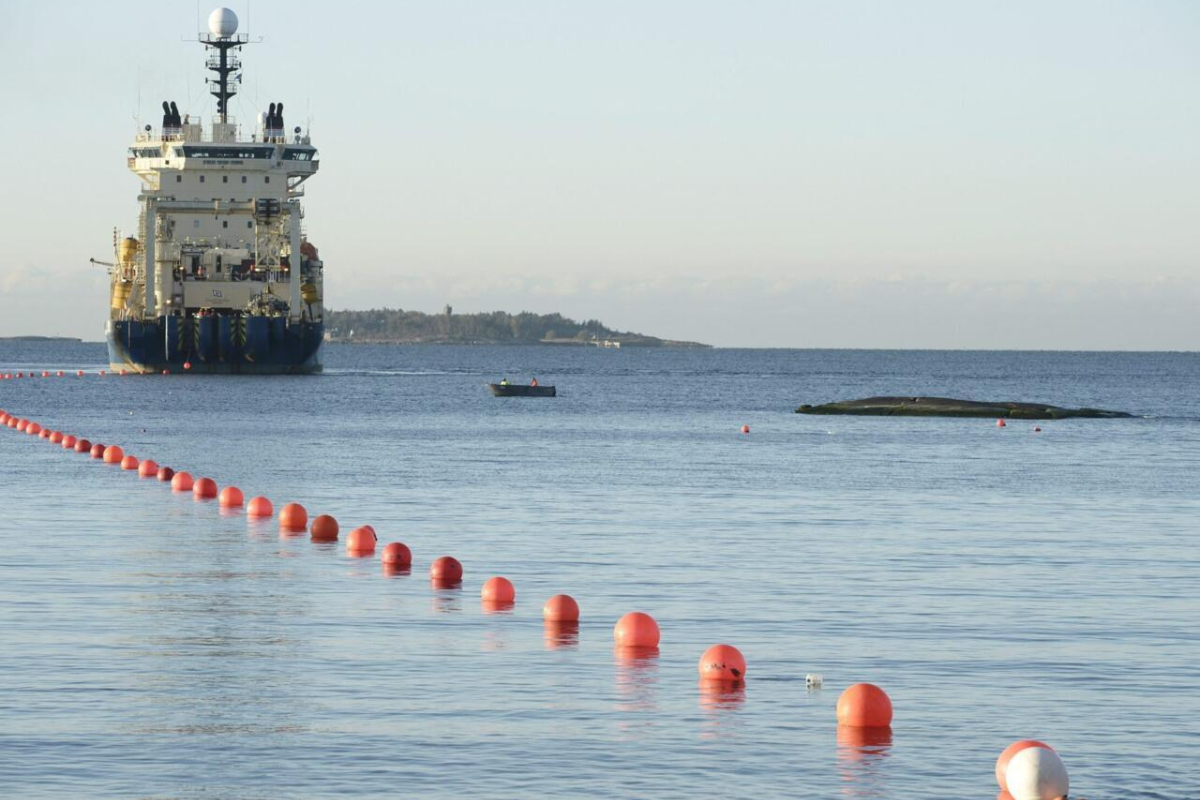Sweden, Denmark PMs say severed undersea cables could be sabotage
Denmark's navy shadows a Chinese cargo ship in the Baltic amid its presence near the damaged C-Lion 1 cable

The C-Lion1 submarine telecommunications cable being laid to the bottom of the Baltic Sea on October 12, 2015 off the shore of Helsinki, Finland.
AFP
The prime ministers of Sweden and Denmark said Wednesday they were not ruling out "sabotage" in the severing of two Baltic Sea cables, adding there was an increased risk of hybrid attacks.
The C-Lion 1 submarine cable connecting Helsinki and the German port of Rostock was cut south of Oland island in Swedish waters, some 700 kilometres (435 miles) from Helsinki on Monday.
Early Sunday, another telecoms cable, the "Arelion", running from the Swedish Baltic Sea island of Gotland to Lithuania, was also damaged.
The four countries affected by the cuts -- Finland, Germany, Lithuania and Sweden -- have all launched investigations into the incidents.
German Defence Minister Boris Pistorius said Tuesday that "we also have to assume, without knowing it yet, that it was sabotage".
Danish Prime Minister Mette Frederiksen told news agency Ritzau: "We are closely following what the relevant authorities are saying, and I wouldn't be surprised if it is an external actor that has carried out sabotage."
Frederiksen added that owing to tensions around the Baltic Sea there was "a risk of hybrid attacks, cyberattacks and attacks on critical infrastructure.
"We're seeing more and more unrest on several fronts," she added.
Her Swedish counterpart Ulf Kristersson echoed her remarks, suggesting that the severed cables "very well could be intentional sabotage".
But "this is not something we know yet, I won't speculate on it," he told Swedish news agency TT.
"We live in a time where you need to take every such risk very seriously. We have previously seen sabotage," Kristersson added.
Denmark's navy said Wednesday it was shadowing a Chinese cargo vessel in the Baltic Sea, which according to ship tracking sites had been in the area at the time the C-Lion 1 cable was damaged.
Since Russia's full-scale invasion of Ukraine in February 2022, there have been several such cases, highlighting the mounting tensions in the Baltic region.
In September 2022, a series of underwater blasts ruptured the Nord Stream pipelines that carried Russian gas to Europe.
In October 2023, an undersea gas pipeline between Finland and Estonia had to be closed after it was damaged by the anchor of a Chinese cargo ship.






Comments
See what people are discussing